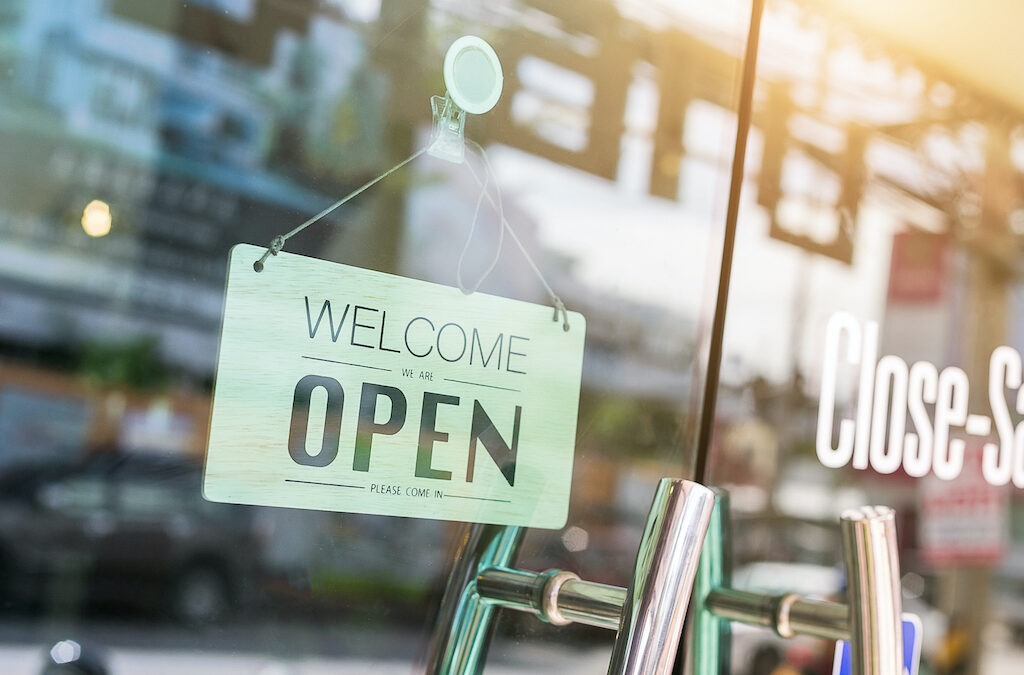Lockdowns are being lifted, many businesses and schools are slowly opening, and governments all around the world are beginning to loosen their COVID-19 restrictions in an effort to resuscitate the economy.
For some people, this is nothing but good news. They are excited about getting back into society and hanging out with close friends and family after months of isolation. For others, these recent developments drive their anxiety levels to new heights.
The Fear of Re-entering Society
You’re not alone if you feel anxious about transitioning out of isolation. The majority of people are struggling with their fears and uncertainties about getting back into society, especially with the coronavirus still very much alive and thriving.
What if I get the virus?
While this is a concern shared by everyone, it could be a debilitating source of fear for elderly people and those with pre-existing medical conditions or weak immune systems. Even if you don’t fall into these categories, you might have friends or family members who do. The constant worry and fear for those closest to you could cripple your desire for an end to the lockdowns and restrictions.
What if I can’t cope with the “new normal”?
Life, as we know it, has changed, and not everyone will find it easy to adjust. The journey of adjusting to the ‘new normal’ will be a long and arduous one. Bubbly social butterflies will have to learn to make do with limited and smaller social gatherings. Looking for a job in an economy that is struggling to bounce back is a daunting task for even the most confident. For those who still have jobs, chances are you will be taking on twice your usual workload and possibly with a reduced salary.
Restaurants, bars, nightclubs, and other small and medium business owners whose enterprises thrive on large crowds might not survive the economic downturn and the new social distancing requirements.
What if my social skills are rusty?
If you suffer from social anxiety, then the lockdown and the accompanying social restrictions may have been welcome changes. No more awkward dating scenes or uncomfortable social gatherings. You were able to retreat into your introverted shell without fear of judgment or being the odd one out. And no FOMO! Even social media took a break from highlighting enviable vacations and parties.
Now that you’re faced with going back into the world and dealing with all that potential social evaluation, your anxiety levels would naturally spike.
Avoidance: A Risky and Disastrous Route
Most times, anxiety is stimulated when we are thrown out of our comfort zone or what is predictable. For the past couple of months, the mandatory home-isolation was stifling but at least it offered a certain sense of control and protection from the virus.
Now, we are being told we can leave our haven and venture out into the world. Losing that feeling of control over our fate and circumstances can trigger anxiety and panic.
You’ve probably debated whether to go out and may have decided you’d rather continue the lockdown. Although staying at home may provide a sense of control and comfort, it does perpetuate the cycle of avoidance and avoidance is just a temporary solution. It postpones the inevitable and makes the next anxiety attack even more difficult to overcome.
Avoidance breeds more avoidance and makes anxiety worse in the long-term. The loosening of restrictions gives us an opportunity to face this new reality and our fears.
Tips for Overcoming Your Re-entry Anxiety
Understand and accept
Being anxious about the new changes coming your way is a normal, human reaction. Don’t try and avoid or ignore these feelings. Understand that it is normal to feel this way. Accepting your present reality puts you in the right frame of mind to deal with all the challenges.
Prioritize
This is perhaps one of the most effective strategies for managing anxiety. We all wish our problems would take care of themselves, but it’s up to us to face them. You still have to pay your bills, feed your family, and pursue your career and dreams. The question is: ‘How do these needs rank in comparison to your fears?’ For example, is it worth the risk of taking the subway to work in order to maintain a paycheck and progression in your chosen career?
You have to sit down and make a conscious decision. Is facing your fear an acceptable risk to take to achieve your life priorities? Having a clear sense of your priorities makes it easier to navigate the new and changing realities.
Take one day at a time
Just because you’ve decided to face your fears and get some things back on track, it doesn’t mean you have to rush into things headfirst. Take your time and ease yourself back into society slowly. There’s no rush. And it’s not all-or-nothing. Deciding to sit with friends in a backyard is not the same as going to a crowded bar. You can decide to do some things but not others. And of course, any decisions you make will be informed by relevant public health data.
On your first day out, stroll in the park with your mask on. Get used to seeing people around you while practicing social distancing. Try something new each day – that is in line with your priorities – that pushes you out of your comfort zone.
Avoid the spiral of negative thoughts
No one knows when a new surge of infections will hit. You don’t know if the last person who pressed the button before you on the elevator is infected. Obsessing about things beyond your control leads to negative thoughts and mental stress which in turn triggers anxiety.
Once you find yourself needlessly worrying, ask yourself: Is this within my control?
You can’t control everything. However, you can do your part to keep yourself safe by practicing proper safety measures. It’s important that you are in the driver’s seat making decisions, not anxiety.
Start Anxiety Counseling in Baltimore, MD
On a final note, if you do notice your anxiety getting worse, seek the services of an anxiety therapist for anxiety counseling and treatment. Teletherapy or online therapy can be a great option. Even during a pandemic, you don’t have to suffer alone. Contact New Connections Counseling Center regarding anxiety therapy!
Other Services Offered by New Connections Counseling Center in Baltimore, MD
New Connections Counseling Center aims to assist many populations with their journey to self-discovery. Our therapists help men, women, college students, and couples overcome life transitions and treatment for depression. Connect with us today.






